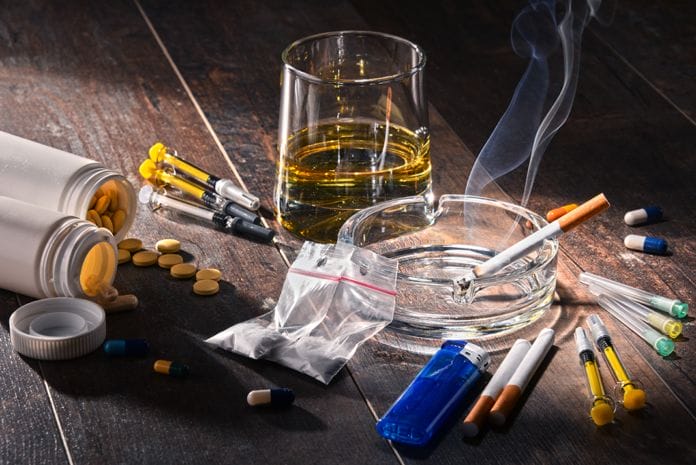Substance abuse is on the rise across America with an estimated 3 million new users every year. This population has unique needs and identifying and understanding the consequences of substance abuse on dental health is crucial.
A new review published in the journal, Addiction, shows a link between substance abuse and poorer dental health. Patients with a substance-abuse disorder have greater amounts of both tooth decay and periodontal disease than non-users. They also are more likely to lack regular, professional dental care.
The review looked at published studies encompassing 4,086 patients with substance-abuse issues over the past 35 years and compared them with 28,031 patients from the general population. The reviewers assessed dental health by comparing the number of missing and filled teeth or surfaces as well as pocket depths among the two groups.
The media often reports on the nefarious effects of substance abuse, such as poverty, crime, overdose rates, and medical side effects like viral infections. Oral health, however, is an often-overlooked side effect of substance abuse that can have systemic health consequences.
Dental problems can create further psychological and health problems for patients. Dental problems can lead to self-esteem issues as well as functional problems, such as the inability to eat or drink properly. Dental problems can also lead to other physiological problems, especially when they are left untreated. For instance, poor oral health has been implicated in causing or exacerbating coronary disease, diabetes, stroke, and respiratory problems.
The researchers found that the type of dental damage varies according to which substance is abused and the route of administration. Marijuana smokers present with increased cavities, dry mouth, and oral cancers while those who abuse methamphetamines tend to have more tooth wear, advanced caries, and dry mouth. Cocaine can be taken internally via several different methods, and those who apply it to their gingiva may present with increased periodontal disease and dental attrition.
Illicit substances cause dental problems, but the lifestyle and environment that accompanies such lifestyles may also contribute to the patients’ poor dental profiles. Substance abusers may live in poverty, and as a result, they may not have the money or insurance to access regular dental care.
Illicit substances can also create a craving for sweet, sugary foods that enhance dental decay. Additionally, when a patient abuses a substance, they may neglect their personal hygiene. This often includes neglecting their daily oral-hygiene habits.
Some substance abusers, however, may suffer from malnutrition. This can worsen existing dental problems or slow recovery times after treatment. Malnutrition can cause enamel hypoplasia and salivary gland dysfunction.
Dental professionals can act to improve the dental health of patients with substance-abuse disorders. It’s vital to take a thorough health history during each visit. We need to identify and understand each patient’s situation and refer him or her to appropriate medical-treatment professionals. Also, understanding the patient’s history allows us to advise or warn the patient about how to better protect their oral health.
It’s imperative to understand a patient’s substance-abuse history because he or she may have developed a tolerance to painkillers and analgesics. That knowledge is crucial to providing effective dental treatment. Also, if a patient is under the influence while in the office, different treatment protocols may be required to properly and safely care for the patient.
As dental professionals, we must understand the effects of substance abuse on dental health to better help and treat this population. Knowledge and understanding can allow us to improve our patients’ quality of life and their overall health. It has been estimated that nearly 1 in 20 people across the globe between the ages of 15 and 64 use illicit substances, so this is an area of dental care that cannot, and should not, be ignored.











